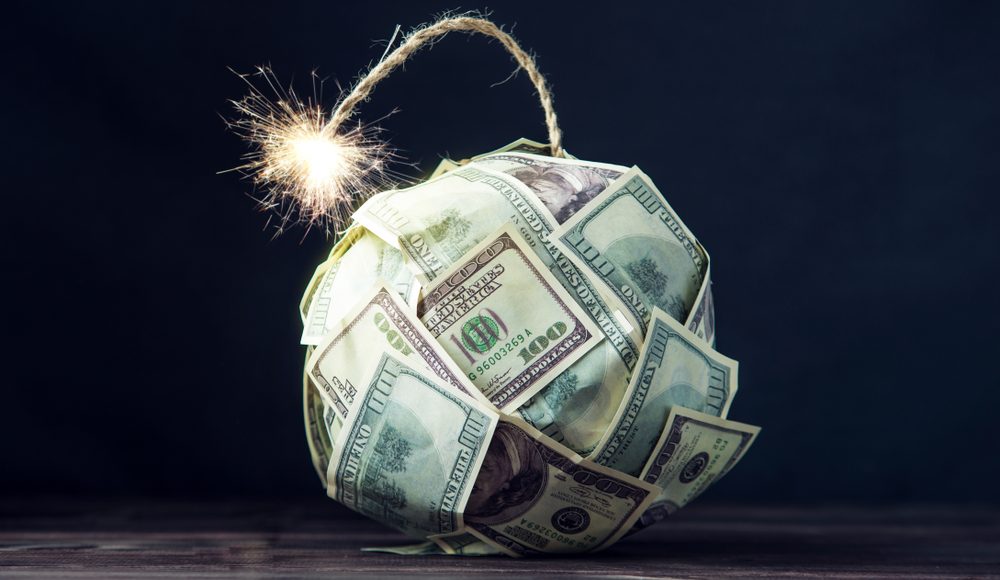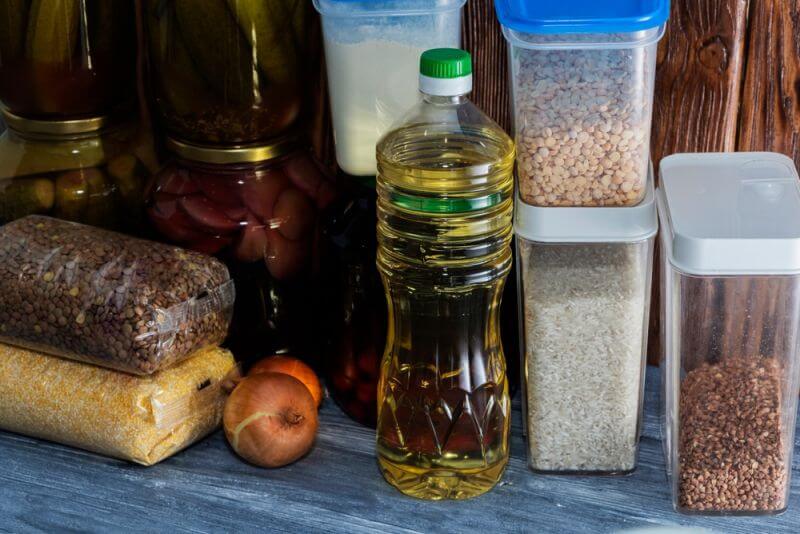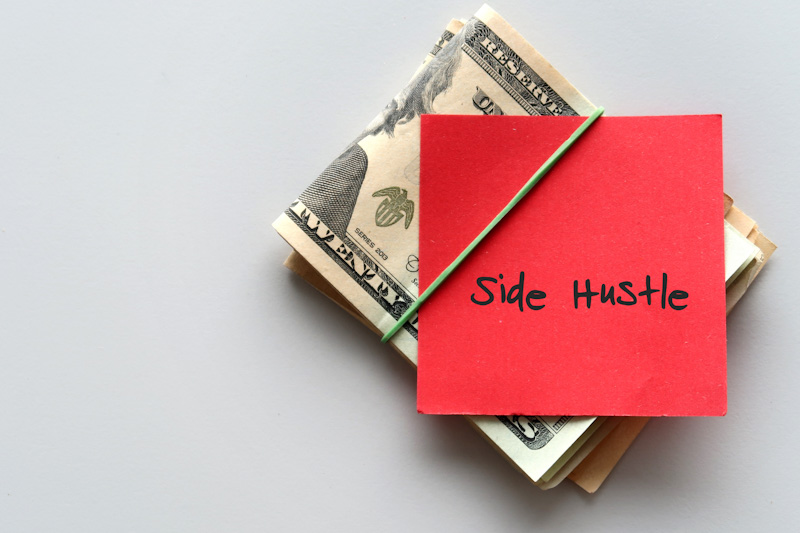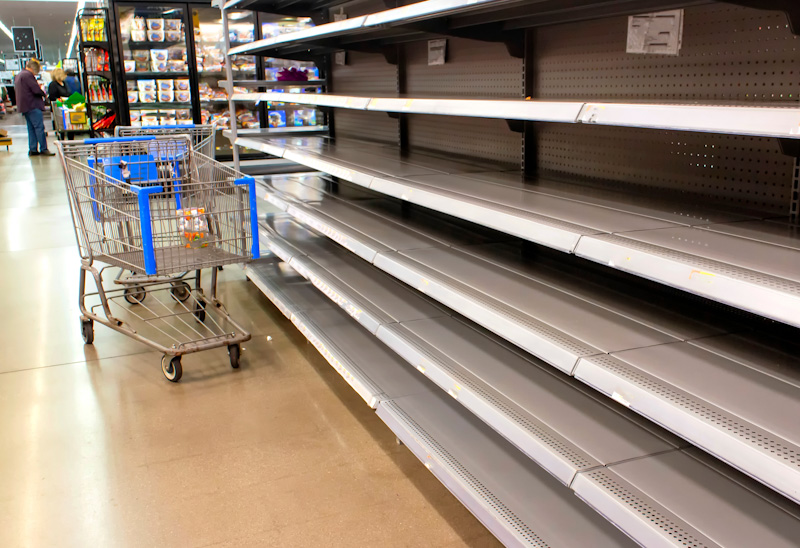I’ve been hearing about a pending financial collapse for years.
Ever since the Great Recession hit in 2008/2009, one financial guru after another has warned us about a pending financial disaster, usually to sell us some sort of product. It’s hit the point where I no longer listen to those declarations of financial doom; as far as I’m concerned, they’ve all lost credibility.
But that doesn’t mean that a financial collapse can’t happen. Actually… it already has. In case you hadn’t noticed it, we’re in the midst of the worst financial collapse the world has seen since the Great Depression. With over 36 million people out of work, our unemployment is the highest it has been in almost a century and the percentage of working Americans above the age of 16 is down to 51.3 percent. That’s considerably lower than the 58.5 percent we saw during the Great Recession in 2009.
It’s hard to pin down the actual unemployment rate, as there is usually a bit of lag in that figure. If you look online today, you’ll see an “official” unemployment rate of 14.7 percent. But even the Bureau of Labor Statistics, the organization that puts out that number, tells us it is wrong. The real unemployment rate is believed to be somewhere between 19 and 23 percent, depending on who’s numbers you believe.
Regardless of what the actual number is; it’s too high. We can’t sustain that high an unemployment rate, without it having drastic effects on other parts of the economy. Right now, people who have lost their jobs due to the pandemic are living on unemployment, which has been boosted by $600 per month, and their government COVID check of $1,200.
It’s unlikely the second round of stimulus checks will be forthcoming, even though various politicians on both sides of the aisle are calling for it. But the $3 trillion packages created by the Democrats have no chance of passing. In return, they are unlikely to cooperate on any package the Republicans put forth.
Nevertheless, the $600 boost in unemployment is making it attractive enough to some, that they’re refusing to go back to work. Small businesses that want to reopen are struggling to find workers who will show up. Then there are the small businesses that will be shutting their doors permanently, killed off due to the lockdown order.
One can say that those small businesses were doomed to fail anyway, but that’s not true. Many small businesses run on a minimal margin, so they are working from month to month, just like a family who lives from paycheck to paycheck. That doesn’t mean they’re doomed to failure; it just means that the business isn’t very profitable. Many small businesses stay at that point, providing a living for the owner and their employees, but nothing more.
Yet without cash reserves, the owners of these companies don’t have anything to fall back on, when the doors are shuttered, as they are now. Even the government loans don’t help, as they are required to pay at least 75% of the money received out in employee salaries.
So, while we’re going to see people going back to work over the next couple of months, the National Bureau of Economic Research says that some 42 percent of the 36 million people laid off due to the pandemic aren’t going to be getting their jobs back. Nor will the roughly 12 million small business owners whose businesses probably going to make it, according to the Small Business Administration.
In other words, high unemployment is going to be around for at least the next couple of years, until enough new jobs are created to make up for all the jobs which have been lost and will continue to be lost due to the nationwide shutdown orders that various governors have put into effect.
Then There’s Inflation

The government can’t keep making money out of thin air, without it having an inflationary effect. The $2 trillion relief package that was signed into law a couple of months ago, plus the more than $700 billion in quantitative easing that the Federal Reserve has done in response to the pandemic, mean that the value of the existing pool of US dollars has been diluted by that much. In other words, each dollar is worth less than it was when the year started.
That’s where most inflation comes from, not from businesses raising the cost of their goods and services. Businesses do that in response to the government creating more money because they can no longer buy what they used to, at the old money value. So we should expect to see inflation coming down the road. It can’t stay at 1 percent.
Grocery prices are already starting to climb, an increase that has been brought about as a result of the pandemic. You’ve probably noticed the increase in eggs, which have been the hardest hit. Egg prices averaged just over $3 a dozen in April, compared to a bit less than $1 a dozen at the first of the year.
But eggs aren’t the only thing going up in price. Due to the various shortages, overall consumer prices for food increased by 2.6 percent in April; a huge increase, when you consider that the overall inflation rate has been down around 1 to 1.5 percent per year for the last several years. If we stay at the same rate of inflation we can expect food prices to go up 23.4 percent by the end of the year.
Fortunately, that’s not likely to happen. With the country opening back up, the agriculture and food industries are going to shift back to normal operations, gradually taking the pressure off from the current strain that they are under and food prices should stabilize. But I doubt they’ll go back down.
Putting the potential for inflation together with the high unemployment rate means that we are already at the brink of that financial collapse, if not right in the midst of it. There’s a very real risk of runaway inflation, which will put us over the edge into financial freefall. The Great Depression, act 2, just waiting in the wings.
Making it Through
So it looks like they’re throwing a financial disaster party; the question is… are we going to come? Just because people are going to be in trouble financially, doesn’t mean that we have to be. Everyone talks about a financial collapse as if we’ll all be out of work and we’ll all be in financial trouble. But it doesn’t have to be that way. Yes, 24.9 percent of the people were unemployed in the Great Depression; but what everyone seems to forget is that 75.1 percent of them still had their jobs.
In other words, a financial collapse doesn’t have to entail you and me losing our jobs and suffering. While we may all face difficulties, we can mitigate those, lessening their impact on our lives. The trick is figuring out how to do that, implementing the right strategies before it’s too late.
Establish Job Security
Obviously, if millions of people are losing their jobs, the most important thing is to keep yours. That means having a job with some security; either because it is inherent in the job itself, or because you have made yourself indispensable to your employer.
Some jobs naturally have a lot of job security associated with them. We’ve all heard a lot about “essential jobs” in the last two months, as people in “non-essential jobs” were laid off. It’s pretty clear, based on that, which jobs are fairly secure. While not a perfect example, those who managed to hang onto their jobs are more likely in an essential occupation and will continue working.
There are some distinct exceptions to that though. During the financial collapse of Argentina, many factories and businesses shut down which dealt with luxury goods. People aren’t likely to buy a new Mercedes when the economy is rocky. Even those who can afford it, are likely to hang onto their old Mercedes longer, putting off the purchase of a new one until things look better.
This actually creates opportunity, as those people who are holding onto things they would otherwise replace the need to have them serviced. Whether we’re talking about Mercedes cars or iPhones is irrelevant. People who can repair them will have job security, while people who make and sell them won’t.
Even within a specific professional field, there are those who have more job security than others. These are people who have made themselves indispensable to their companies. They are the ones that their bosses know they can count on to tackle the tough jobs, work overtime, and get things done. Even if your company is laying people off, being that indispensable person means that you’ll be one of the last to go.
Get a Side Gig

Many financial gurus are now telling us that everyone should have multiple income streams. That’s an especially good idea in times of financial uncertainty. Having something else that you can depend on, which brings in extra income, can help you get through those rough months. It also gives you something to fall back on, if you lose your current job.
Ideally, your side gig should be something that will be secure, even during tough financial times. That means that you’re providing a necessity, rather than a luxury. Selling crafts isn’t a good idea unless those crafts are highly useful items as well.
As you look at the possible options for a side gig, think about how scalable it is too. You’re better off with something that can be scaled up if you or a family member loses their job.
Get Out of Debt
In studying past economic collapses, it is clear that the people who suffer the most are those who are in debt. Whether or not you lose your job, having debts you need to pay reduces your available income. If you do lose your job, it can also mean losing your home, car, or whatever else you’ve bought on credit.
I realize it’s hard to get out of debt. Most of us live on more than 100% of our income, which is how we get into debt in the first place. So it’s necessary to find ways of cutting your expenses if you expect to get out of debt. It’s also useful to consolidate debt, so you can make one payment, instead of several. I could write a whole book on reducing your debt, but don’t have the room to do so here.
More than anything, you need to look at your current debt, with an eye towards figuring out what you don’t need. If you’ve got a high-end car, for example, you need to ask yourself if you could get by with less. Trading that car in for something smaller and less costly could save you a lot of money.
Invest for the Collapse
Finally, if you have the ability to do so, invest for the collapse. If we end up with high inflation, as I expect than having money in the bank isn’t going to be all that great. The value of that money will disappear rapidly, making it as if you didn’t have it at all.
If you have a lot of money to invest, then the most secure investment in a time of financial difficulty is precious metals. As the value of cash goes down, the value of gold and silver goes up. Historically, silver has actually been a better investment than gold. Since it costs less, that’s good for those of us who don’t have a lot to invest in.
If you just have a little to invest, you might want to invest it in non-perishable food, rather than precious metals. One of the biggest shortages during a time of financial crisis is food. Investing in food not only means that you’ll have something to eat; but that food can be used as trade goods, allowing you to barter for other things of value.








Buck | May 19, 2020
|
This article was on point. Very good advice. He is the first that I have seen say this, “If you just have a little to invest, you might want to invest it in non-perishable food, rather than precious metals.”. Brilliant for those of us who are not independently wealthy.
WallyZ | May 19, 2020
|
Mr. White, You talked of keeping a job if you have one, what do you see for us older folks 70 or so, on social security, and a pension , IRAs we are relying on. ?
Do you forsee that money continue??, in the event of a more serious collapse…
Shawn | May 20, 2020
|
The lockdown was totally unnecessary and totally manufactured by the government(s). Furthermore, it was and is a violation of our NATURAL RIGHTS. Mostly these would be the freedom of association, freedom of movement, and right to earn a living.
AlexOL | May 20, 2020
|
S has already HTF for sure. The current state of development and technology and tools/systems available may mitigate the impact on some sectors, or help ease others back, perhaps even spark the creation of new ones. That’d be a little different of what happened in the 1930s. But it’s inevitable that some will suffer for sure. And not many people will be able to adapt in time. But we must persevere and take it one day at a time.
Klais Surik | May 17, 2021
|
I would admit, by the way, that it’s not so straightforward now to employ Salesforce professionals. However, if you know the labor market mechanisms in this field, it’s true. I know this now, because I’ve got to know how to employ a hire a salesforce administrator in depth, and I already know how to do it quickly and easily. That’s why I suggest that everyone get to know it. Good fortune.
Abram Abram | June 8, 2021
|
You helped me so much as a writer’s conference newbie with the same advice you just wrote. And when I was a college journalism major, our prof told us the same for newspaper writing. Thanks!
zignaly | September 25, 2021
|
The cryptocurrency market provides opportunities to make money every day. Some of them are conservative, for example, trading on bitcoin rate fluctuations, the value of which can be about 10% per day. Other options offer both significantly higher income and significant risks.